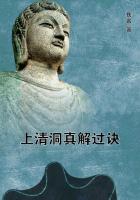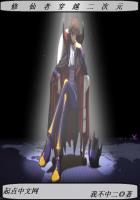BUT the emotional conviction that he was in Somebody's hand began to die out of Henchard's breast as time slowly removed into distance the event which had given that feeling birth. The apparition of Newson haunted him.
He would surely return.
Yet Newson did not arrive. Lucetta had been borne along the churchyard path; Casterbridge had for the last time turned its regard upon her, before proceeding to its work as if she had never lived. But Elizabeth remained undisturbed in the belief of her relationship to Henchard, and now shared his home. Perhaps, after all, Newson was gone for ever.
In due time the bereaved Farfrae had learnt the, at least, proximate cause of Lucetta's illness and death; and his first impulse was naturally enough to wreak vengeance in the name of the law upon the perpetrators of the mischief. He resolved to wait till the funeral was over ere he moved in the matter. The time having come he reflected. Disastrous as the result had been, it was obviously in no way foreseen or intended by the thoughtless crew who arranged the motley procession. The tempting prospect of putting to the blush people who stand at the head of affairs - that supreme and piquant enjoyment of those who writhe under the heel of the same - had alone animated them, so far as he could see; for he knew nothing of Jopp's incitements. Other considerations were also involved. Lucetta had confessed everything to him before her death, and it was not altogether desirable to make much ado about her history, alike for her sake, for Henchard's, and for his own. To regard the event as an untoward accident seemed, to Farfrae, truest consideration for the dead one's memory, as well as best philosophy.
Henchard and himself mutually forbore to meet. For Elizabeth's sake the former had fettered his pride sufficiently to accept the small seed and root business which some of the Town Council, headed by Farfrae, had purchased to afford him a new opening. Had he been only personally concerned Henchard, without doubt, would have declined assistance even remotely brought about by the man whom he had so fiercely assailed. But the sympathy of the girl seemed necessary to his very existence; and on her account pride itself wore the garments of humility.
Here they settled themselves; and on each day of their lives Henchard anticipated her every wish with a watchfulness in which paternal regard was heightened by a burning jealous dread of rivalry. Yet that Newson would ever now return to Casterbridge to claim her as a daughter there was little reason to suppose. He was a wanderer and a stranger, almost an alien; he had not seen his daughter for several years; his affection for her could not in the nature of things be keen; other interests would probably soon obscure his recollections of her, and prevent any such renewal of inquiry into the past as would lead to a discovery that she was still a creature of the present. To satisfy his conscience somewhat Henchard repeated to himself that the lie which had retained for him the coveted treasure had not been deliberately told to that end, but had come from him as the last defiant word of a despair which took no thought of consquences. Furthermore he pleaded within himself that no Newson could love her as he loved her, or would tend her to his life's extremity as he was prepared to do cheerfully.
Thus they lived on in the shop overlooking the churchyard, and nothing occurred to mark their days during the remainder of the year. Going out but seldom, and never on a market-day they saw Donald Farfrae only at rarest intervals, and then mostly as a transitory object in the distance of the street. Yet he was pursuing his ordinary avocations, smiling mechanically to fellow-tradesmen, and arguing with bargainers - as bereaved men do after a while.
Time, "in his own grey style", taught Farfrae how to estimate his experience of Lucetta - all that it was, and all that it was not. There are men whose hearts insist upon a dogged fidelity to some image or cause thrown by chance into their keeping, long after their judgement has pronounced it no rarity - even the reverse, indeed; and without them the band of the worthy is incomplete. But Farfrae was not of those. It was inevitable that the insight, briskness, and rapidity of his nature should take him out of the dead blank which his loss threw about him. He could not but perceive that by the death of Lucetta he had exchanged a looming misery for a ****** sorrow. After that revelation of her history, which must have come sooner or later in any circumstances, it was hard to believe that life with her would have been productive of further happiness.
But as a memory, notwithstanding such conditions, Lucetta's image still lived on with him, her weaknesses provoking only the gentlest criticism, and her suffering's attenuating wrath at her concealments to a momentary spark now and then.
By the end of a year Henchard's little retail seed and grain shop, not much larger than a cupboard, had developed its trade considerably, and the stepfather and daughter enjoyed much serenity in the pleasant, sunny corner in which it stood. The quiet bearing of one who brimmed with an inner activity characterized Elizabeth-Jane at this period. She took long walks into the country two or three times a week, mostly in the direction of Budmouth. Sometimes it occurred to him that when she sat with him in the evening after these invigorating walks she was civil rather than affectionate;and he was troubled; one more bitter regret being added to those he had already experienced at having, by his severe censorship, frozen up her precious affection when originally offered.
She had her own way in everything now. In going and coming, in buying and selling, her word was law.
"You have got a new muff, Elizabeth," he said to her one day quite humbly.
"Yes; I bought it," she said.















